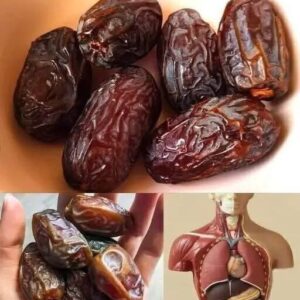In an intriguing development that has captured the attention of environmental enthusiasts and community members alike, a new and somewhat unconventional initiative is gaining traction among residents: the practice of placing a spoonful of sugar in the backyard every time one leaves the house. This seemingly simple act is being promoted with a series of online instructions, accompanied by a prompt to check the first comment below the post for further details.
While at first glance, the recommendation might seem peculiar or even humorous, its underlying purpose is rooted in ecological and community-driven efforts designed to promote sustainability, enhance local ecosystems, and foster greater awareness of environmental stewardship. The concept has sparked curiosity and debate across social media platforms, leading to a wave of discussions about the potential benefits and the science behind such community-based environmental activities.
**Understanding the Initiative**
The instruction—”Don’t forget to place a spoon of sugar in your backyard every time you leave the house”—may appear whimsical, but it connects to broader themes of encouraging small, manageable actions that collectively make a difference. The act of placing sugar in one’s backyard could serve multiple purposes, depending on the detailed guidelines shared by the organizers.
One plausible explanation is that the act is designed to support local pollinators, such as bees, butterflies, and other insects vital to maintaining healthy ecosystems. Sugar, especially when dissolved in water, is often used in specific contexts to provide sustenance to struggling pollinator populations. By leaving a small amount of sugar in the backyard, residents could be helping to ensure that these essential insects have access to resources, especially during periods when natural floral nectar might be scarce.
Alternatively, some community initiatives promote similar actions as a way to attract and sustain beneficial bugs or microorganisms, which in turn contribute to soil health and plant growth. Such small acts can be part of a broader effort to create micro-ecosystems within urban or suburban environments, fostering biodiversity and supporting the delicate balance of local ecology.
**The Role of Community Engagement**
What makes this initiative particularly notable is the emphasis on community involvement and shared responsibility. By encouraging individuals to participate regularly—every time they leave the house—organizers aim to build a culture of mindfulness towards environmental impact. The simple act of placing sugar in one’s backyard becomes a symbolic gesture of care and stewardship, reinforcing the importance of human actions in nurturing the natural world.
Moreover, the instruction accompanying a prompt to check the first comments suggests an active effort to foster ongoing dialogue and provide additional context, tips, or scientific explanations. This approach indicates a well-organized campaign that values transparency and community transparency, inviting participants to learn more and share their experiences.
**Scientific Perspectives and Considerations**
From an environmental science standpoint, the idea of supplementing pollinators with sugar solutions is not new. Beekeepers often feed honey or sugar syrup to colonies during off-nectar seasons or when colonies are weak. However, broader application in urban or residential settings should be approached with informed guidance to avoid unintentional harm.
It is essential for participants to understand that sugar should be used responsibly, in moderation, and typically with diluted solutions to prevent attracting pests or encouraging mold growth. Furthermore, experts recommend combining such actions with planting native flowering plants, avoiding pesticides, and providing clean water sources to create a more holistic approach to supporting local pollinator populations.
**Public Reception and Future Outlook**
Since the announcement of this initiative, reactions among the public have been mixed. Many appreciate the creativity and the community-driven spirit of small environmental actions. Others have expressed skepticism, questioning the efficacy and scientific basis of the practice, urging that efforts be rooted in well-researched and sustainable methods.
Environmental organizations and local councils are observing these developments with interest, considering ways to integrate similar ideas into broader conservation programs. Educational campaigns are being proposed to ensure participants understand the proper procedures and the environmental rationale behind this action.
**Conclusion**
The practice of placing a spoon of sugar in one’s backyard every time they leave the house is an example of how simple, everyday actions can spark communal engagement in environmental conservation. While seemingly modest, these gestures embody a collective effort to support biodiversity and promote ecological awareness within local communities. As with all such initiatives, success hinges on informed participation and integrating these actions into a broader sustainability strategy.
For those interested in participating, the campaign encourages visiting the first comment below the original post for detailed instructions, scientific insight, and community feedback. Embracing such innovative, grassroots approaches demonstrates that fostering environmental stewardship can be accessible, approachable, and effective when driven by community spirit and scientific understanding.
STAY TUNED !




